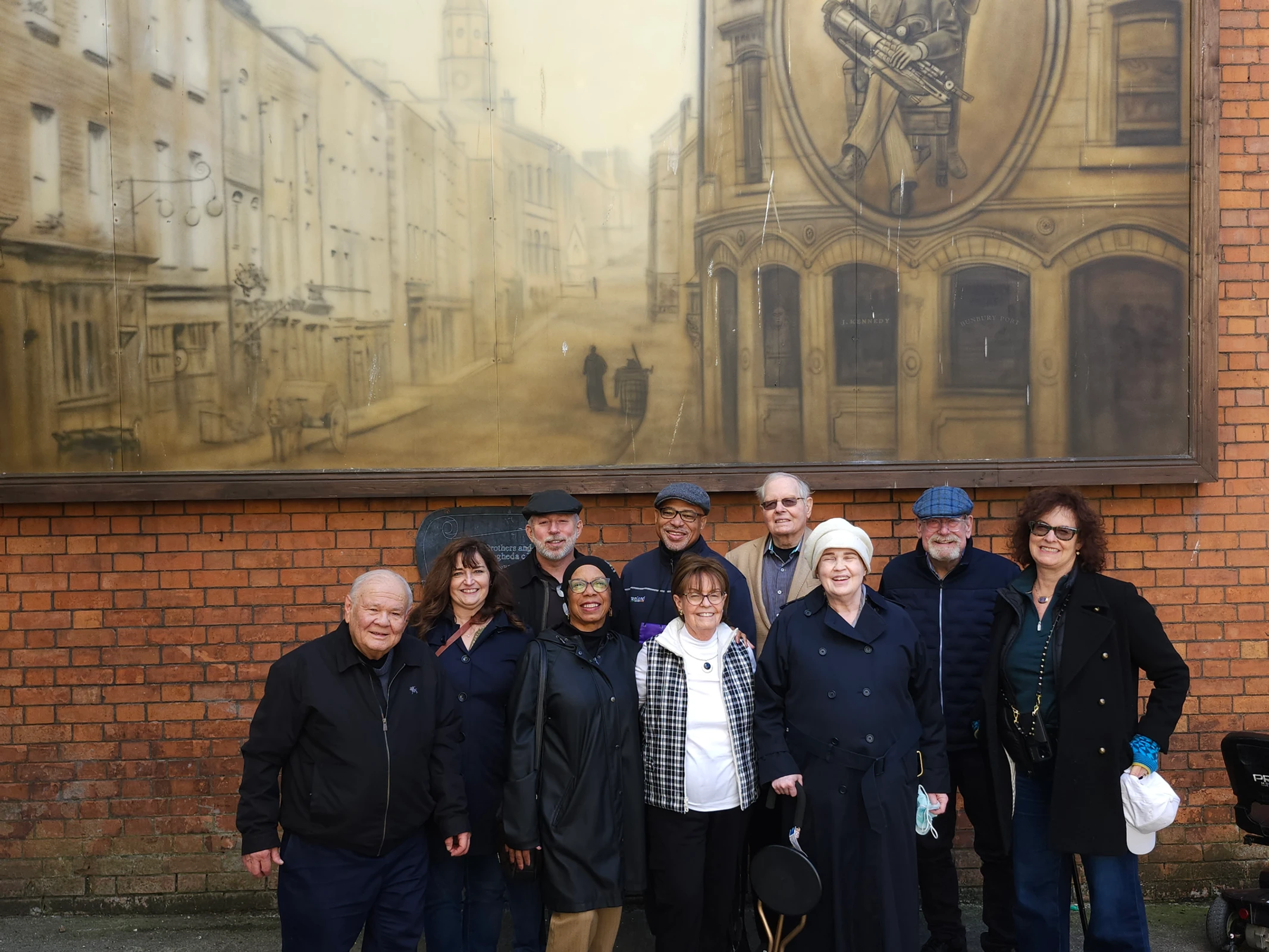
Our legal delegation, which was comprised of lawyers and guests mainly from Texas, went to Ireland as a legal delegation Sept. 17-27, 2024. Our goal was to delve into Ireland’s road to peace stemming from its Troubles; how the Rule of Law plays out in the country; and the importance music has played in the history of Ireland.
During our time in Ireland, our delegation had meaningful interactions with barristers, professors, musicians, historians, and peacemakers.
We met with Turlough O’Donnell, who is recognized as one of the leading barristers and mediators in Ireland. He was very generous with his time. The 1.5-hour exchange occurred during the United States’ 2024 presidential election, and it was very clear that the members of the Irish bar we were meeting felt one of the candidates was a danger to them and the world order. One young barrister expressed bewilderment that our country had gotten to this point. We also discussed many nuts and bolts of the practice of law. For example, the Irish legal structure follows the English model, where the bar is divided between solicitors and barristers.
The barristers are the ones that go to court, whereas the solicitors do not, but rather are the gatekeepers and handle noncourt matters. Barristers are not in firms or groups and are reliant on solicitors to send them litigation business. Although barristers with established reputations can do quite well, one young barrister told me he was struggling due to lack of business. After our meeting, Turlough took us to a bar with live music and bought us all Guinness.
At the University of Galway, we were greeted by Martin Hogg, dean of the university’s law school. Along with him, we also met Maeve O’Rourke, who is one of the leading voices for human rights in Ireland.
After lengthy discussions with our Irish hosts, it became clear that a softening of the attitudes of the North and the Republic is needed. This is something that cannot be legislated. So, the question is where to begin in what seems an impossible task. It was a pleasant surprise to find that there are individuals and organizations that are attempting to accomplish the reconciliation that is needed.
One example of an individual seeking reconciliation is Trevor Ringland. Trevor is a lawyer and a partner in Macaulay & Ritchie and has earned a reputation in the field of litigation in Northern Ireland. He is a former British and Irish rugby player and is wellknown for his public profile on issues of Irish reconciliation.
In 2021 he was appointed the U.K.’s first special envoy to the United States on Northern Ireland. He is highly accomplished with many accomplishments and honors, but what interested us the most was his cross-community work in the area of reconciliation. In recognition of this, an organization he co-founded, PeacePlayers, was awarded the Arthur Ashe Courage Award at ESPN’s ESPY Awards. In Belfast, Northern Ireland, PeacePlayers brings together Catholic and Protestant youth to play basketball and form friendships in the hope that future generations will reconcile the divided country. PeacePlayers is also active in the Middle East, South Africa, and the United States.
It is remarkable, Trevor said, that once the boys are on the same team and striving for the same goal, the differences and long-standing resentment disappear. Integrating the children also, by necessity, integrates the parents. I think of this program as a shining example of cooperation and community building.
We also met with Martina Purdy, who was a high-profile BBC Northern Ireland political correspondent reporting on the peace process that led up to the Good Friday Agreement on April 10, 1998. She has written a book, Room 21: Stormont Behind Closed Doors, which covers the rise and fall of the power sharing assembly in Northern Ireland. She was in Oslo as a reporter when
David Trumble and John Hume shared the Nobel Peace prize for their contributions in bringing about the peace agreement between Northern Ireland and the Republic of Ireland. And then this highly accomplished public figure quit the BBC in 2014 and entered religious life as a Sister of Adoration in Belfast.
We learned much from Martina. She told us that, in the 1960’s, Ireland was taking note of the civil rights protests around the globe, in particular the Civil Rights movement in the U.S. and apartheid in South Africa. At this same time in Ireland, Catholics could not effectively vote as voting was based on ownership of property, and few Catholics had jobs that would have enabled them to buy property.
Getting to the peace agreement was not easy, and there is still work to be done. My hope is that, through these legal delegations, we can exchange ideas that can heal the divides in both Ireland and the United States.
If you would like to join us on a future delegation trip, please be on the lookout for a notice in Bar Code.
